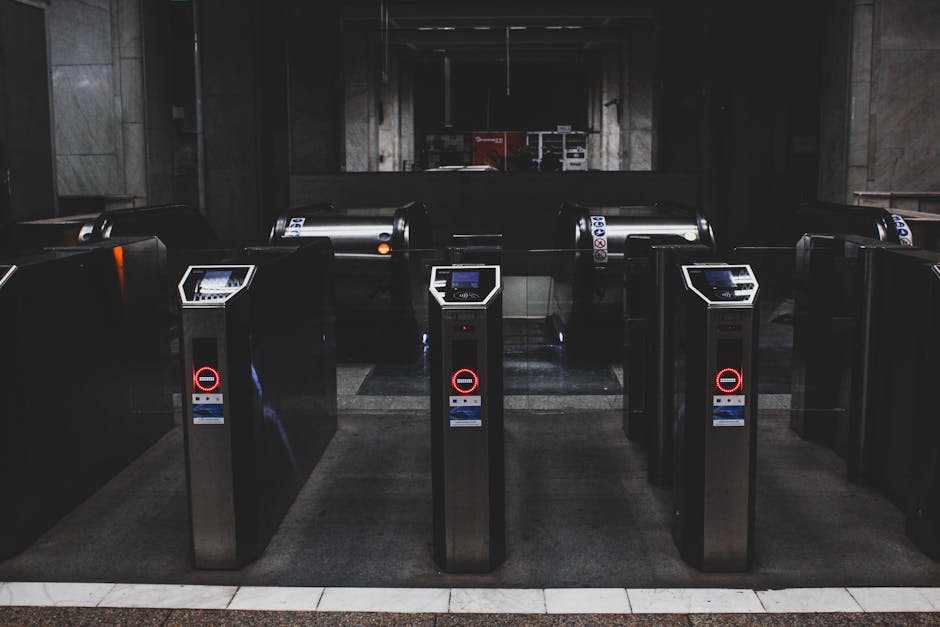Retention Through Upskilling
Additionally, the sector is rebounding strongly post-pandemic. Consequently, competition for skilled hospitality professionals is intense. Furthermore, the UAE’s vision for a knowledge-based economy emphasizes continuous learning. Investing in workforce development aligns with national goals. It transforms human capital into a competitive asset.
This comprehensive guide explores the transformative power of employee development. We will analyze its benefits, implementation strategies, and future potential. Ultimately, retention through upskilling is not just a tactic. It is a essential strategy for sustainable success in the dynamic UAE hospitality market.
Understanding Retention Through Upskilling
Retention through upskilling is a strategic human resource approach. It focuses on keeping valuable staff by enhancing their skills. This method directly counters the high cost of employee turnover. It creates a more engaged and capable workforce.
Moreover, it moves beyond traditional training. This philosophy embeds continuous learning into the organizational culture. Employees feel valued when companies invest in their careers. Therefore, they are more likely to remain loyal to their employer.
Specifically, it involves identifying skill gaps. Then, it provides targeted training to bridge those gaps. This process benefits both the employee and the organization. It is a win-win strategy for talent management.
Retention Through Upskilling Benefits
Implementing a robust upskilling program yields immense benefits. Firstly, it dramatically reduces recruitment and onboarding expenses. Secondly, it increases employee morale and job satisfaction. A skilled workforce delivers superior guest experiences consistently.
Additionally, it future-proofs the organization. The hospitality industry evolves rapidly with new technologies. Upskilling ensures staff can adeptly use new systems and processes. This adaptability is crucial for maintaining a competitive edge.
Furthermore, it enhances the hotel’s employer brand. A reputation for investing in employees attracts top talent. It positions the hotel as an employer of choice. This is vital in a competitive job market like the UAE.
How Retention Through Upskilling Works
Successful implementation requires a structured and thoughtful approach. First, conduct a thorough skills gap analysis. Identify which competencies are lacking within your teams. This analysis should align with the hotel’s strategic goals.
Next, develop personalized learning paths for employees. These paths should cater to different roles and career aspirations. For example, front desk staff might need advanced customer service software training. Meanwhile, housekeeping may benefit from new cleaning technology certifications.
Then, choose the right delivery methods. Blended learning often works best. It combines online modules with hands-on workshops. Finally, establish clear metrics to measure the program’s return on investment. Track retention rates, guest satisfaction scores, and productivity metrics.
Best Retention Through Upskilling Practices
Adopting industry best practices is key to success. Start by securing unwavering commitment from senior leadership. Their support ensures adequate funding and organizational priority. Additionally, integrate upskilling with performance management systems.
Moreover, create a culture that celebrates learning. Recognize and reward employees who actively develop new skills. This positive reinforcement encourages continued participation. Furthermore, partner with reputable training providers and educational institutions.
Always align training content with real-world hotel challenges. Practical, applicable knowledge has the highest retention and impact. Regularly update programs to reflect industry trends and new International Labour Organization guidelines.
Retention Through Upskilling Implementation
Effective implementation is a multi-phase process. Begin with a pilot program in one department. This allows you to refine the approach before a full-scale rollout. Clearly communicate the program’s benefits and objectives to all staff.
Provide dedicated time for learning during work hours. This shows the organization’s serious commitment to development. Utilize internal mentors and subject matter experts as trainers. They understand the specific context of your hotel’s operations.
Leverage technology for scalable learning management. Use platforms that offer mobile accessibility for shift workers. Continuously gather feedback from participants. Use this input to iteratively improve the program’s content and delivery.
Advanced Retention Through Upskilling Strategies
For larger hotel chains, advanced strategies can be deployed. Develop a digital badge or micro-credentialing system. This allows employees to build a portfolio of verified skills. It adds tangible value to their career progression.
Additionally, implement cross-functional upskilling. Train staff in adjacent departments to increase operational flexibility. For instance, upskilling a concierge in basic event management can be invaluable during peak periods. This also adds variety to an employee’s role.
Furthermore, use data analytics to predict future skill needs. Analyze U.S. Department of Commerce trade information and tourism trends. Proactively train staff for the demands of tomorrow’s market. This strategic foresight provides a significant advantage.
Retention Through Upskilling Success Tips
Maximize your program’s effectiveness with these proven tips. First, ensure training is relevant and immediately applicable. Employees must see the direct benefit to their daily work. Second, empower employees to choose their learning paths. Autonomy boosts engagement and motivation.
Third, link skill acquisition to career advancement opportunities. Create clear pathways for promotion based on mastered competencies. Fourth, celebrate successes publicly. Share stories of employees who grew their careers through upskilling.
Finally, be patient and persistent. Cultural change and skill development take time. Consistently champion the program’s value. Monitor UAE government employment regulations for any supporting initiatives or subsidies.
Future of Retention Through Upskilling
The future of upskilling in the UAE hotel industry is digital and personalized. Artificial Intelligence will play a key role. AI can curate hyper-personalized learning content for each employee. It will identify individual strengths and weaknesses with precision.
Additionally, Virtual and Augmented Reality will transform training. Imagine practicing a check-in procedure with a virtual guest. Or learning complex kitchen equipment maintenance in a simulated environment. These technologies make learning immersive and risk-free.
Furthermore, a greater emphasis on soft skills is emerging. As automation handles routine tasks, human skills become more valuable. Training in empathy, problem-solving, and cultural intelligence will be critical. These skills define the luxury guest experience.
Frequently Asked Questions
What is the main goal of retention through upskilling?
The primary goal is to reduce employee turnover. It achieves this by investing in the professional development of existing staff. This makes them more skilled and engaged, encouraging them to build a long-term career with the hotel.
How does upskilling improve guest satisfaction?
A more skilled workforce delivers higher quality service. Well-trained employees handle guest requests more efficiently. They can also resolve issues proactively. This leads to more positive guest reviews and increased loyalty.
What is the typical ROI for an upskilling program?
Return on investment is often significant. It includes reduced hiring costs, lower turnover, and higher productivity. Many hotels also see a direct correlation with increased guest spending and satisfaction scores, boosting revenue.
Which departments benefit most from upskilling?
All departments benefit, but front-line roles often see the fastest impact. Guest-facing teams like front office, food and beverage, and concierge directly influence the customer experience. Investing in them yields immediate visible results.
How can we measure the success of our program?
Key metrics include employee retention rates, internal promotion rates, and guest satisfaction scores. Also, track pre-and post-training performance reviews. Employee engagement survey results are another strong indicator of success.
Are there government initiatives in the UAE that support this?
Yes, the UAE government strongly promotes Emiratization and vocational training. Programs like the National Vocational Qualifications (NVQ) framework support skill development. Hotels should research available incentives and partnerships for training.
Conclusion
Retention through upskilling is no longer optional for UAE hotels. It is a strategic imperative. The industry’s recovery and growth depend on a stable, skilled workforce. This approach directly addresses the chronic challenge of high turnover.
Investing in people is the ultimate competitive advantage. It builds a resilient organization capable of adapting to future trends. Moreover, it creates a positive culture where employees feel valued and see a future. This leads to exceptional service that guests remember and return for.
Begin your journey today. Assess your current capabilities and identify key skill gaps. Develop a plan that aligns with your brand’s vision. For further guidance, explore our professional resources or reach out for an expert consultation. You can also schedule appointment with our specialists to create a customized upskilling strategy. The future of your hotel depends on the investment you make in your people today.




